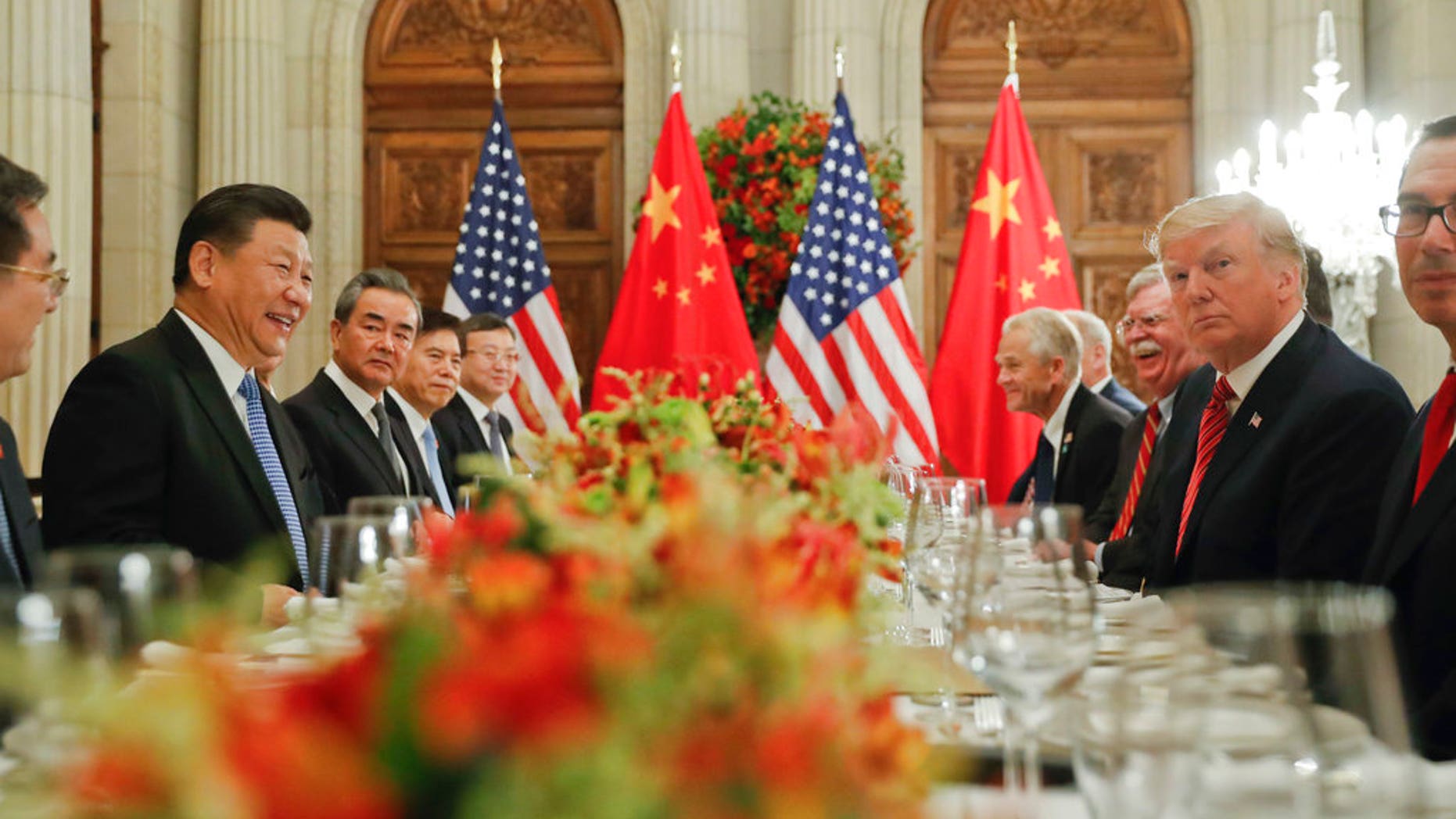Ukraine-Russia Negotiations: Trump Advocates For Direct Talks, Ignoring Ceasefire Demand

Table of Contents
Trump's Stance: Prioritizing Direct Engagement Over Ceasefire
The Argument for Direct Negotiations
Trump has consistently argued for direct engagement between Ukraine and Russia, believing that this approach offers the most efficient path to resolving the conflict. He contends that bypassing intermediaries and established diplomatic channels could lead to a swifter resolution and more substantial agreements. In various interviews and statements, Trump has emphasized the potential for breakthroughs that might be missed through protracted negotiations involving multiple parties.
- Faster Resolution: Direct talks could streamline the process, cutting through bureaucratic hurdles and allowing for more rapid progress.
- More Substantial Agreements: Without intermediaries, both sides might be more willing to make concessions, leading to a more comprehensive and lasting peace agreement.
- Bypassing Perceived Obstacles: Trump's argument implicitly suggests that current international efforts are hampered by bureaucratic inefficiencies or political agendas that direct talks could overcome.
However, critics argue that this approach ignores crucial power dynamics and potentially leaves Ukraine vulnerable.
Ignoring the Ceasefire Demand: A Risky Strategy?
Prioritizing direct talks without a prior ceasefire presents significant risks. The absence of a truce could allow Russia to exploit any perceived weakness in Ukraine's negotiating position, potentially leading to further territorial gains or concessions.
- Potential for Exploitation by Russia: Without a ceasefire, Russia could continue military operations, putting Ukraine at a significant disadvantage during negotiations.
- Lack of Leverage for Ukraine: Continued violence diminishes Ukraine's bargaining power, forcing them into a weaker negotiating position.
- Continued Violence and Suffering: The absence of a ceasefire prolongs the humanitarian crisis, causing unnecessary suffering for the Ukrainian people.
Conversely, some argue that a ceasefire isn't necessarily a pre-requisite for initiating direct talks; it could be a goal to be achieved during those talks, a point of negotiation rather than a pre-condition.
Historical Context and Precedents
Examining past instances of direct negotiations in international conflicts reveals both successes and failures. The success of direct talks often hinges on pre-existing conditions such as a relatively balanced power dynamic, a shared desire for peace, and the existence of a trustworthy mediation framework, even if those talks themselves are direct.
- Successful Examples: The Camp David Accords between Egypt and Israel, while involving a mediator, demonstrate the potential of direct engagement between leaders to achieve significant breakthroughs.
- Unsuccessful Examples: The failure of numerous peace talks in various conflicts highlight the risks of direct talks without proper preparation and a conducive environment. These failures often stemmed from a lack of trust, unequal power dynamics, or unrealistic expectations. Analysis of these cases reveals the importance of carefully considering the context and establishing trust-building measures before engaging in direct negotiations.
Counterarguments and International Perspectives
The International Community's Position
The international community, particularly NATO, the EU, and the UN, largely emphasizes the urgency of a ceasefire before any meaningful negotiations can take place. They argue that a cessation of hostilities is essential to create a safer environment conducive to dialogue and prevent further escalation.
- NATO's Stance: NATO has consistently called for a ceasefire and has provided military aid to Ukraine to bolster its defense capabilities.
- EU's Position: The EU has imposed sanctions on Russia and has provided significant financial and humanitarian assistance to Ukraine, emphasizing a negotiated settlement but based on a prior ceasefire.
- UN's Role: The UN has played a mediating role, emphasizing humanitarian aid and the importance of international law in resolving the conflict.
Ukraine's Perspective on Direct Talks
Ukraine's official stance on direct negotiations with Russia remains cautious. While open to dialogue, Kyiv insists on a ceasefire and the withdrawal of Russian troops from occupied territories as preconditions for any meaningful talks. They are wary of entering direct negotiations without sufficient guarantees regarding their security and sovereignty.
- Security Concerns: Ukraine's primary concern is to ensure its security and territorial integrity. Direct talks without a ceasefire could leave them vulnerable to further aggression.
- Sovereignty Concerns: Ukraine is determined to protect its sovereignty and independence, viewing direct talks as potentially risky without clear international guarantees against Russian pressure.
Expert Opinions and Analysis
Political analysts and conflict resolution specialists offer diverse perspectives on Trump's proposed approach. Some express skepticism about the feasibility of direct talks without a ceasefire, highlighting the potential risks and imbalances of power. Others suggest that direct talks, even without an immediate ceasefire, might open channels for communication and de-escalation, paving the way for a more comprehensive peace agreement.
- Experts emphasize the need for careful consideration of the potential risks and benefits, suggesting that the context is crucial.
- Some suggest that a phased approach, combining both direct talks and incremental ceasefires in specific areas, could be more effective.
Conclusion: Assessing the Viability of Direct Ukraine-Russia Negotiations
Trump's proposal to prioritize direct Ukraine-Russia negotiations, even without a prior ceasefire, presents both potential benefits and significant risks. While direct talks could theoretically lead to a faster resolution and more comprehensive agreements, the absence of a ceasefire could leave Ukraine vulnerable to further aggression and undermine its negotiating position. The international community's emphasis on a ceasefire highlights the widespread concern about the potential dangers of this approach. Ukraine's cautious stance reflects its determination to protect its sovereignty and security. The viability of Trump's proposal ultimately depends on a careful assessment of the existing power dynamics, the willingness of both sides to compromise, and the establishment of a framework that protects Ukraine's interests. Further research and discussion are crucial to understanding the various strategies for achieving a peaceful conflict resolution in Ukraine, focusing on the paramount importance of a ceasefire and the complexities of Ukraine-Russia negotiations. Stay informed about developments on this critical issue through reputable news sources and independent analysis.

Featured Posts
-
 Lily Collins Calvin Klein Photos A Look At Campaign Image 5133598
May 12, 2025
Lily Collins Calvin Klein Photos A Look At Campaign Image 5133598
May 12, 2025 -
 Indy 500 Takuma Satos Entry Confirms 34 Car Field
May 12, 2025
Indy 500 Takuma Satos Entry Confirms 34 Car Field
May 12, 2025 -
 Chantal Ladesou Critique Ines Reg Dans Mask Singer La Verite Sur Leur Relation
May 12, 2025
Chantal Ladesou Critique Ines Reg Dans Mask Singer La Verite Sur Leur Relation
May 12, 2025 -
 Payton Pritchards Unexpected Nba Sixth Man Of The Year Award
May 12, 2025
Payton Pritchards Unexpected Nba Sixth Man Of The Year Award
May 12, 2025 -
 West Jet Onexs 25 Stake Sold To International Carriers Investment Recovered
May 12, 2025
West Jet Onexs 25 Stake Sold To International Carriers Investment Recovered
May 12, 2025
